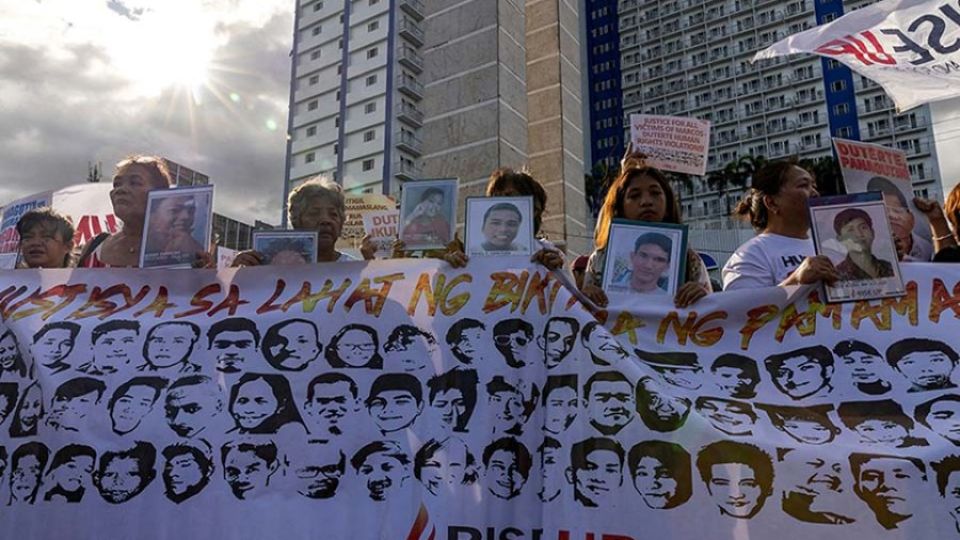March 13, 2025
JAKARTA – The time has finally come for former Philippine president Rodrigo Duterte to face justice at the International Criminal Court (ICC) in The Hague for his central role in the extrajudicial killings of thousands of suspected drug dealers and criminals in his country.
For some leaders in the region, which is still grappling with human rights issues despite the adoption of the ASEAN Human Rights Declaration in 2012, Duterte’s arrest is alarming and should be taken seriously.
The leaders should learn from Duterte, as there are international mechanisms, including the ICC, in place to hold them accountable for atrocities and crimes against humanity they commit. Following in Duterte’s footsteps may be Myanmar’s military junta leader, Gen. Min Aung Hlaing, who is on the wanted list of the ICC prosecutor. The general had been accused of war crimes, including violence against and displacement of minority Rohingyas, even before he seized power from a democratically elected government on Feb. 1, 2021.
ICC prosecutor Karim Khan said the Myanmar junta leader committed the crimes from August to December 2017 in Bangladesh, which is a party to the ICC.
Many, however, say Duterte’s arrest is not enough, as there are figures who remain untouchable despite the blood on their hands, such as Israeli Prime Minister Benjamin Netanyahu. The ICC has issued an arrest warrant for the Israeli leader, which means the 122 ICC member states are obligated to arrest him if he enters their territories, including France and the United Kingdom.
Given the United States’ persistent support for Netanyahu, however, it is next to impossible that we will see him stand trial in The Hague.
The ICC has indicted 68 people, including Russian President Vladimir Putin, Netanyahu and Duterte. The trials of 34 war crime suspects are underway, with 30 still at large, three serving sentences and four having the charges against them dismissed.
Duterte arrived at The Hague on Tuesday and might think he did no wrong in ordering the deaths of tens of thousands of people under the guise of a war on drugs. His supporters justified the merciless crackdown he orchestrated as the mayor of Davao and, later, as president from 2016 to 2022.
The ICC first noticed the alleged atrocities in 2016 and started its investigation in 2021. It covered cases from November 2011, when he was the mayor, to March 2019, before the Philippines, under his leadership, withdrew from the ICC. Until his arrest, he kept vowing to kill more drug dealers if he had a chance.
The arrest of 79-year-old Duterte went unhindered thanks to the full cooperation of President Ferdinand “Bongbong” Marcos Jr. The ICC only issued an arrest warrant for the former Philippine president on March 7.
Marcos Jr initially refused to help the ICC, arguing that it was purely a domestic issue. The two men formed an alliance that catapulted Marcos Jr to power in 2022, taking the place of Duterte. But the relationship between the two has nosedived in the past months after Duterte’s daughter, Vice President Sara Duterte, clashed with Marcos, and was subsequently impeached by the Senate on Feb. 5.
The ICC is responsible for investigating and, where warranted, trying people charged with the gravest crimes of concern to the international community, such as genocide and war crimes. The court only has jurisdiction over crimes committed after the entry into force of the Rome Statute on July 1, 2002.
Tens of thousands of the families of the victims of Duterte’s extrajudicial killings can now hope justice is served after years of waiting. For people across ASEAN, the arrest and upcoming trial of Duterte will help show that human rights are a norm that will guide the region to a brighter future.
Cambodia and Malaysia are the only ASEAN member states that have ratified the Rome Statute. But all the governments and peoples of ASEAN must ensure that after Duterte, there will be no more rulers who resort to terror to hold on to power.


